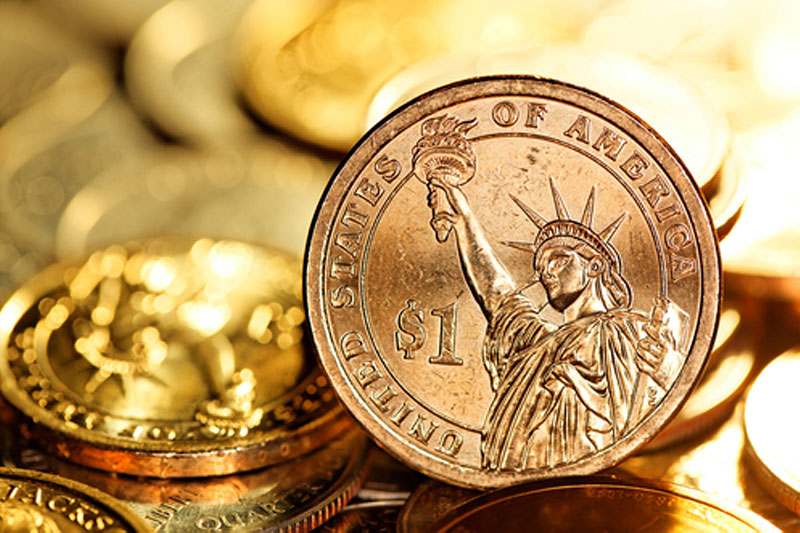By Peter Nurse
Investing.com - The dollar edged higher Friday, halting its recent downtrend as Treasury yields pushed higher. However, moves are small ahead of the release of the latest U.S. employment data.
At 3:55 AM ET (0755 GMT), the Dollar Index, which tracks the greenback against a basket of six other currencies, was down 0.1% at 89.812, bouncing off a near three-year low following a slide of nearly 7% in 2020.
USD/JPY was up 0.1% at 103.90, EUR/USD fell 0.1% to 1.2262, after earlier reaching an almost three-year high of 1.2346. GBP/USD climbed 0.1% to 1.3579, while the risk-sensitive AUD/USD was up 0.2% at 0.7783.
The greenback has been on the slide for months, with the central drivers being hopes of a global recovery, backed by the introduction of Covid-19 vaccines, backed by deeply negative U.S. real rates.
Adding to this overall trend this week has been the Democrats winning effective control of the Senate, giving President-elect Joe Biden scope to push through more spending.
That said, this trend has taken a breather Friday with the benchmark 10-year Treasury yield topping 1% earlier this week for the first time since March amid the political turmoil in Washington DC.
That said, “expectations that the vaccine rollout will allow economies to reopen in the second quarter of the year should mean that if we do see any corrections in the dollar trend, they will be reasonably shallow,” said ING analyst Chris Turner, in a research note.
“We now expect EUR/USD and USD/JPY to be ending the year closer to 1.30 and 100, respectively.”
Trading ranges have been narrow Friday ahead of the much-watched monthly nonfarm payroll report, with traders looking for clues on whether significantly more stimulus will be needed to keep the jobs recovery alive.
The December figure is expected to show a gain of 71,000 jobs, at 8:30 AM ET (12:30 GMT), which would be far lower than the 245,000 jobs added in November. Earlier this week, a payroll report by ADP (NASDAQ:ADP) said private businesses cut 123,000 jobs in December, far worse than economists' had expected.
